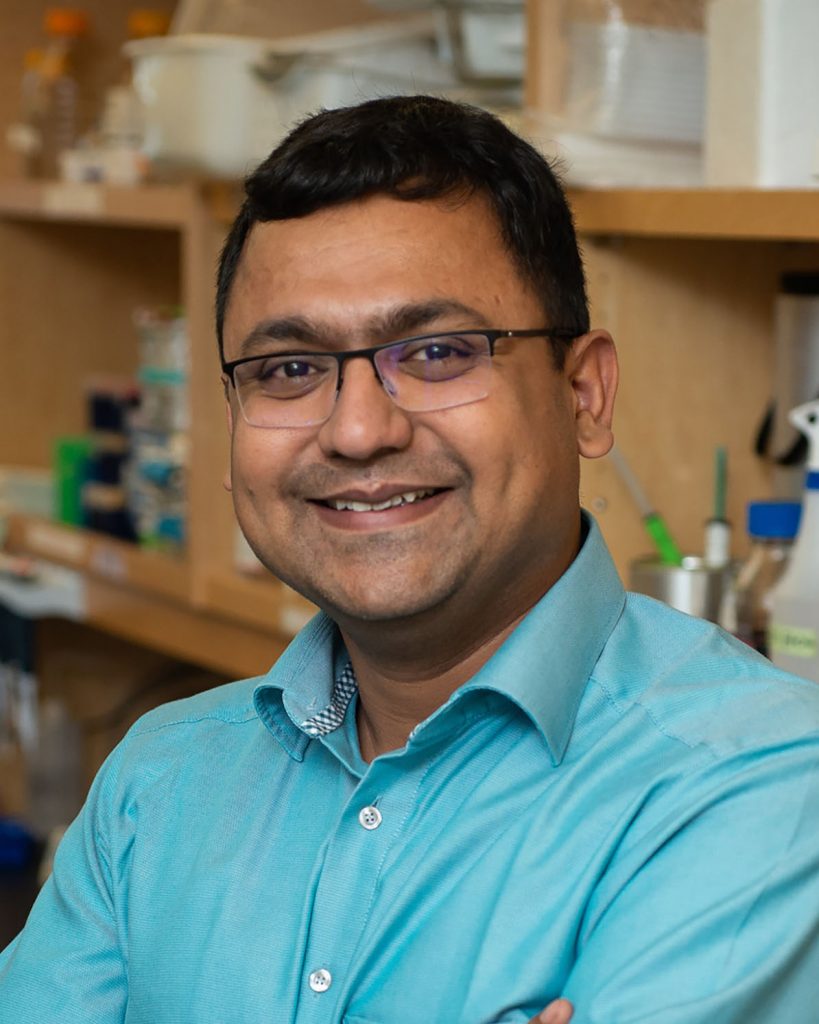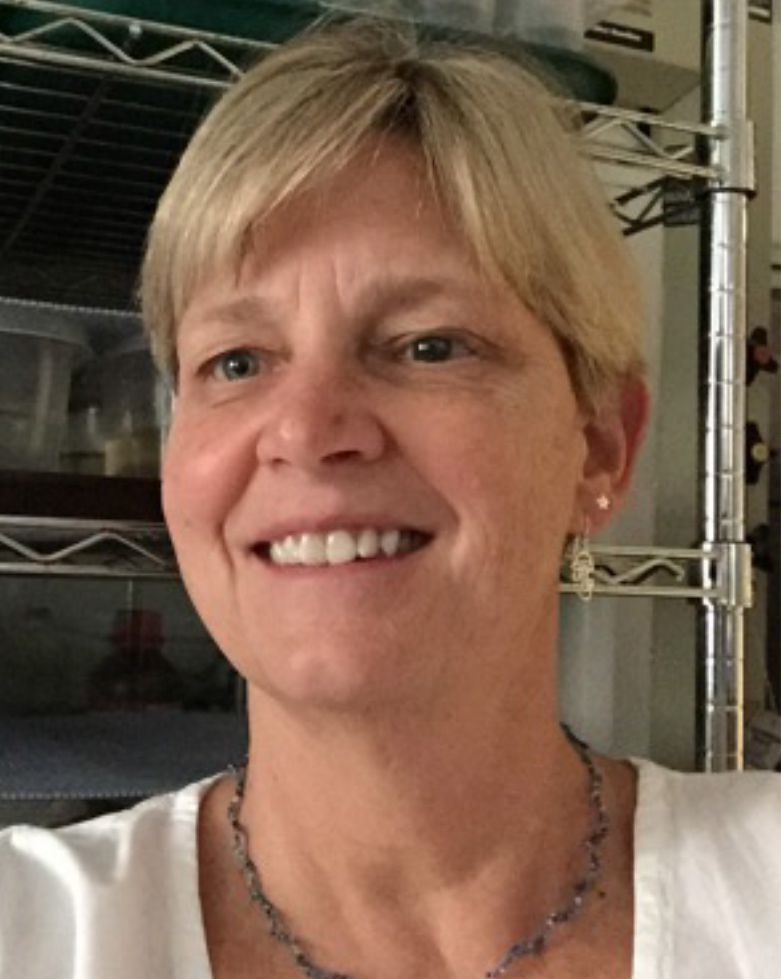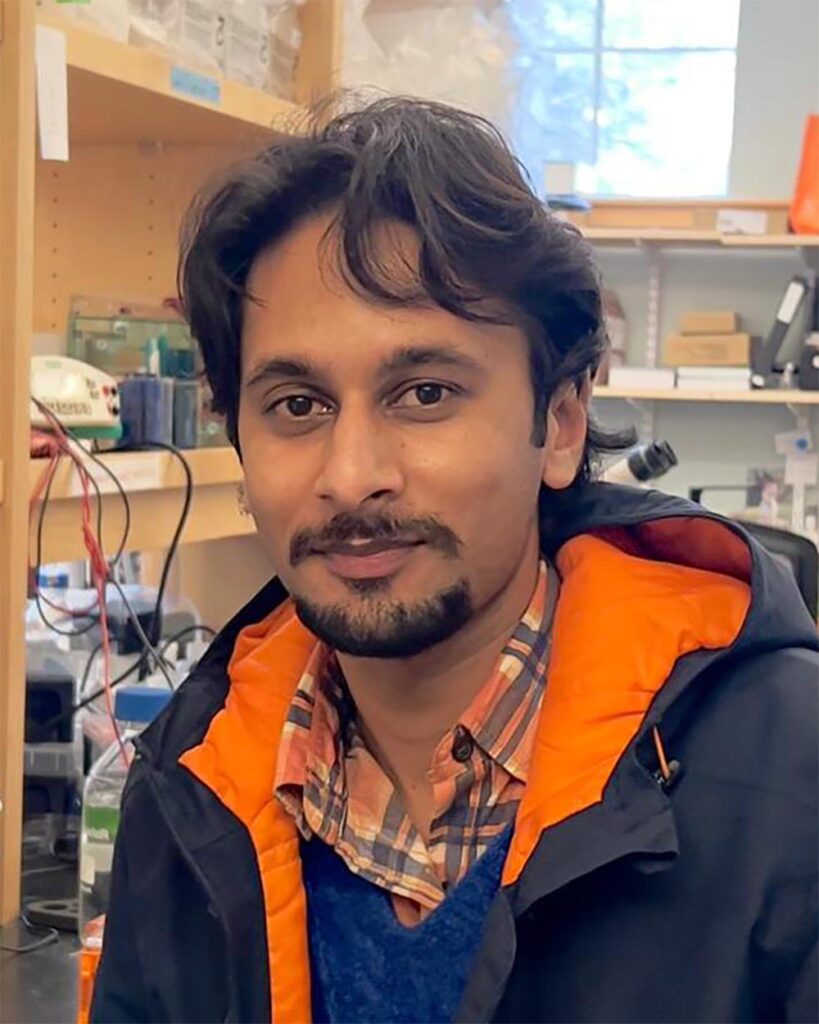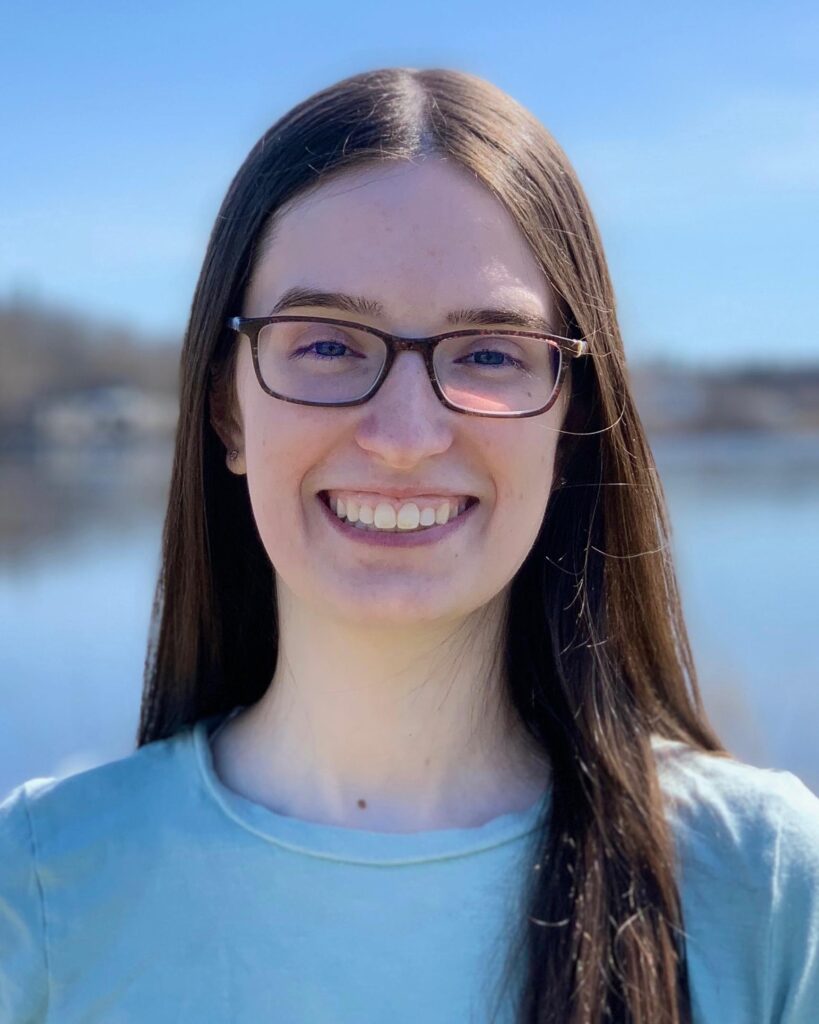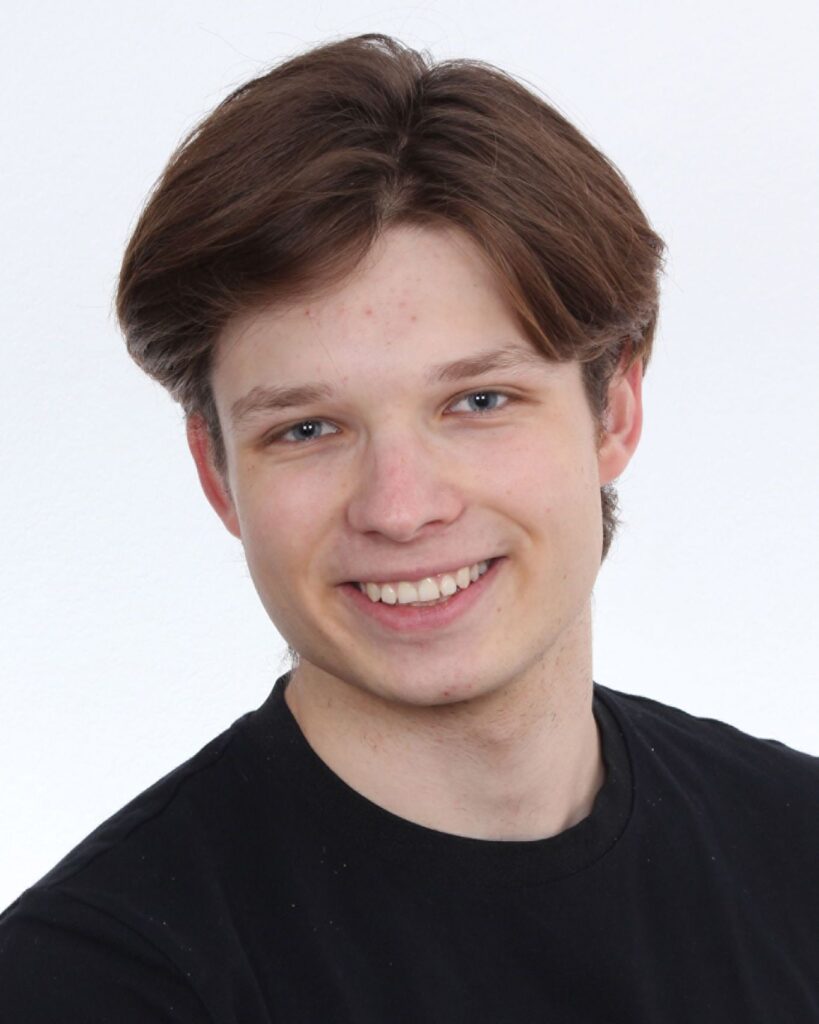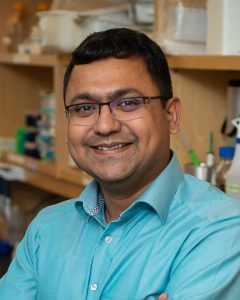
Prayag Murawala, Ph.D.
– Assistant Professor, MDIBL; research group leader, Hannover Medical School; adjunct faculty at The Jackson Laboratory and the University of Maine, Orono.
Prayag studied across India—Bharuch, Anand, Vadodara, Mumbai, Bangalore—before pursuing his Ph. D. studies in the lab of Dr. Jomon Joseph at the National Centre for Cell Science (NCCS) in Pune, India (2005-2010). He then moved to Dresden, Germany to train as a postdoctoral fellow in Dr. Elly Tanaka’s lab at the Max Planck Institute of Molecular Cell Biology and Genetics (MPI-CBG). He continued his postdoctoral work with Elly at the Center for Regenerative Therapies (CRTD), also in Dresden, and then at the Research Institute of Molecular Pathology (IMP), Vienna (postdoctoral studies: 2011-2020). After these studies in Europe, he moved to the east coast of the USA in 2020 to start his lab at MDIBL, in Bar Harbor, Maine. Prayag is currently an assistant professor at MDIBL, and also has a joint appointment as a research group leader in the Department of Nephrology and Hypertension, Hannover Medical School, Germany. In addition, Prayag is an adjunct faculty at The Jackson Laboratory and the University of Maine.
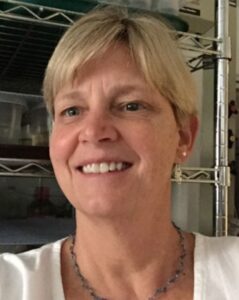
Karen Crawford, Ph.D.
– Senior Research Scientist, MDIBL
Dr. Crawford, Ph.D. is a Senior Research Scientist and Professor Emerita at St. Mary’s College of Maryland. In the Murawala laboratory, she studies and assists with the study of embryogenesis, regeneration and metamorphosis in the axolotl. Her work blends classic surgical methods and precision microinjection with cutting edge molecular methods to elucidate the mechanisms of pattern formation in development and regeneration. Her research interests and contributions span embryogenesis and regeneration studies in vertebrates (salamander and chick) and invertebrates (worm and squid) and includes seminal genome editing studies in cephalopods.
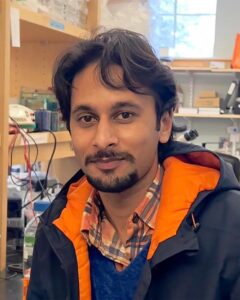
Vijayishwer Singh Jamwal
– Graduate student, University of Maine
I did my Bachelor’s in Life Sciences from Jammu University and Master’s in Science in Zoology from Garhwal University, India. Later, I joined as a Junior Research Fellow at CSIR-Center for Cellular and Molecular Biology (CCMB), India to study the differentiation of iPSCs to various cell types to be used for tissue engineering. Additionally, I have explored the role of biomaterials in the progressive healing during tissue injury. My primary research interest lies in studying the muscle formation during tail and limb regeneration in axolotl to translate the mechanism to other non-regenerative animals.

Roberto Damián García-García (Damián)
– Graduate student, Molecular Medicine, Hannover Biomedical Research School (HBRS)
I hold a Bachelor’s degree in Basic Biomedical Research and a Master’s in Biochemical Sciences with a specialization in Developmental Biology, both from the National Autonomous University of Mexico (UNAM). Currently, I am pursuing a Ph.D. degree in the Murawala Lab, where I focus on developing novel tools to study the intercellular communication during limb regeneration, particularly in relation to the regulation of progenitor cell’s proliferation, differentiation, and organization.
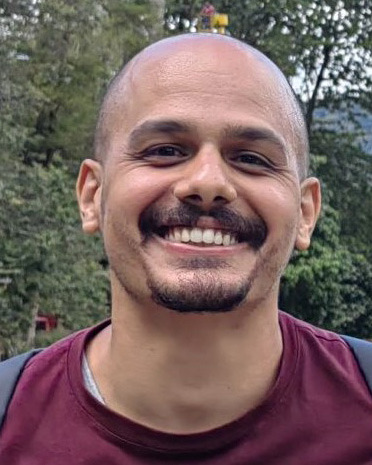
Omar Maged
– Graduate student, Regenerative Sciences, Hannover Biomedical Research School (HBRS)
I got my B.Sc. in Biotechnology from Cairo University, Egypt in 2018, where my graduation project was focused on the isolation and transdifferentiation of adipose derived stem cells. It was then that I developed an interest in stem cells and regenerative medicine. I then got my M.Sc. in Regenerative Medicine from University Malaya, Malaysia in 2023, where I studied the effects of mesenchymal stem cells-derived exosomes on diabetic tendons. I am currently enrolled in the Ph.D. program “Regenerative Sciences” at the Hannover Medical School (Medizinische Hochschule Hannover — MHH). I have joined the Murawala lab for my Ph.D. project, which will be centered around understanding the mechanisms of kidney regeneration in axolotl.
– My publications
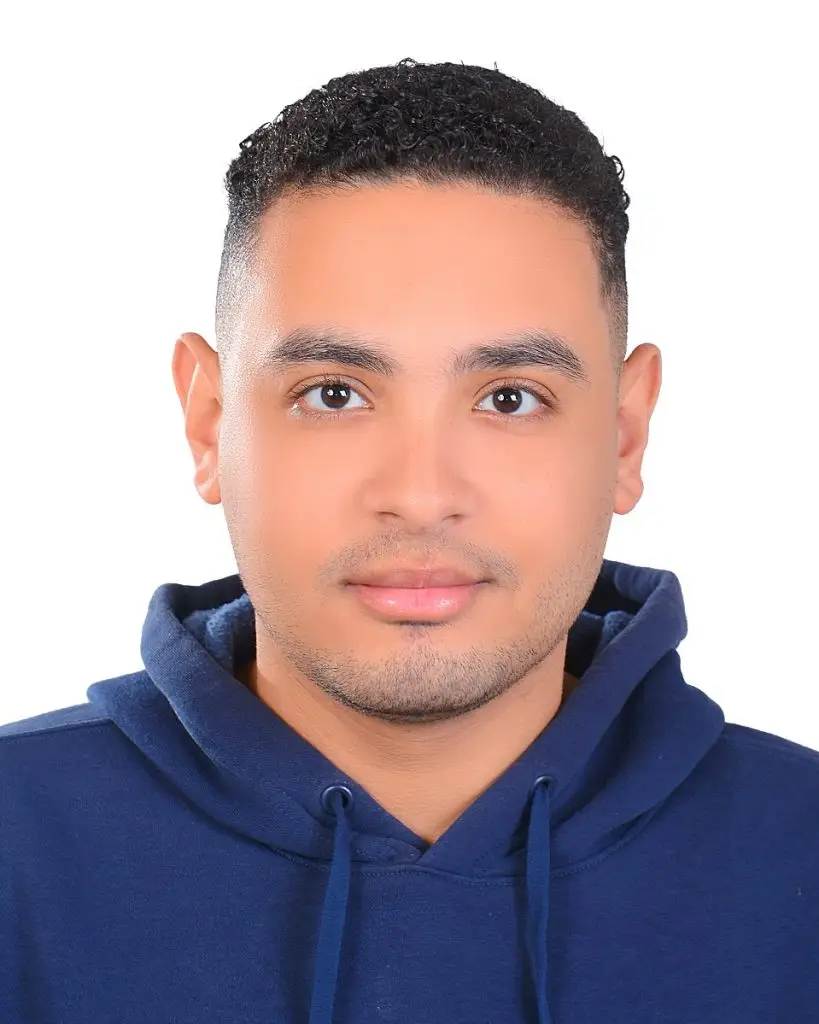
Mohamed Nasreldin (Jimmy)
– Graduate student, Regenerative Sciences, Hannover Biomedical Research School (HBRS)
I am currently enrolled in the Ph.D. program “Regenerative Sciences” at the Hannover Medical School (Medizinische Hochschule Hannover — MHH). I have joined the Murawala lab for my Ph.D. project, which will be centered around understanding the mechanisms of bladder adaptation during axolotl metamorphosis. I first joined the MDI Biological Laboratory in early 2024 as a Master’s intern while completing my Master 2 in Bio-Health, with a major in Cancer, Ageing, and Rejuvenation, at the University of Toulouse III – Paul Sabatier, France (2023–2024). I previously obtained a Master 1 in Genetics and Biotechnology from the Mediterranean Agronomic Institute of Chania (MAICh), Greece, and a Postgraduate Diploma in Physiology and Biochemistry from Suez Canal University, Egypt. My academic training began with a Bachelor of Medical Sciences (B. Med. Sci) degree in Medical Laboratory, awarded by October 6 University, Cairo, Egypt, in 2021.
– My publications

Katelyn White
– Research Assistant II, MDI Bio Lab
I am a graduate from the Husson University, Bangor where I acquired bachelor of science’s degree in Biology with a specialization in Biochemistry. In my new role as a Research Assistant in the Murawala Lab, I have developed whole mount HCR methodologies and I am working on the role of an orphan gene in axolotl limb regeneration.
– My publications
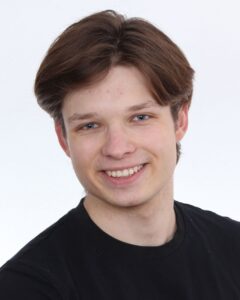
Erik Figura, Medical intern, 2023-2024
– Cand. Medical Doctor, Hannover Medical School, Germany
Erik Figura is a medical student at the Hannover Medical School (MHH), Germany. Currently, he is part of the Hinze Lab at the Department of Nephrology and Hypertension (MHH). Mr. Figura is interested in the effect of metamorphosis on kidney function. He is visiting MDIBL for a year as a medical intern as part of a joint project between the Hinze and Murawala lab. In this collaborative project Mr. Figura will study the changes associated with metamorphosis in neotenic and metamorphic kidney using modern molecular biology, physiology and histological tools.
– My publications
